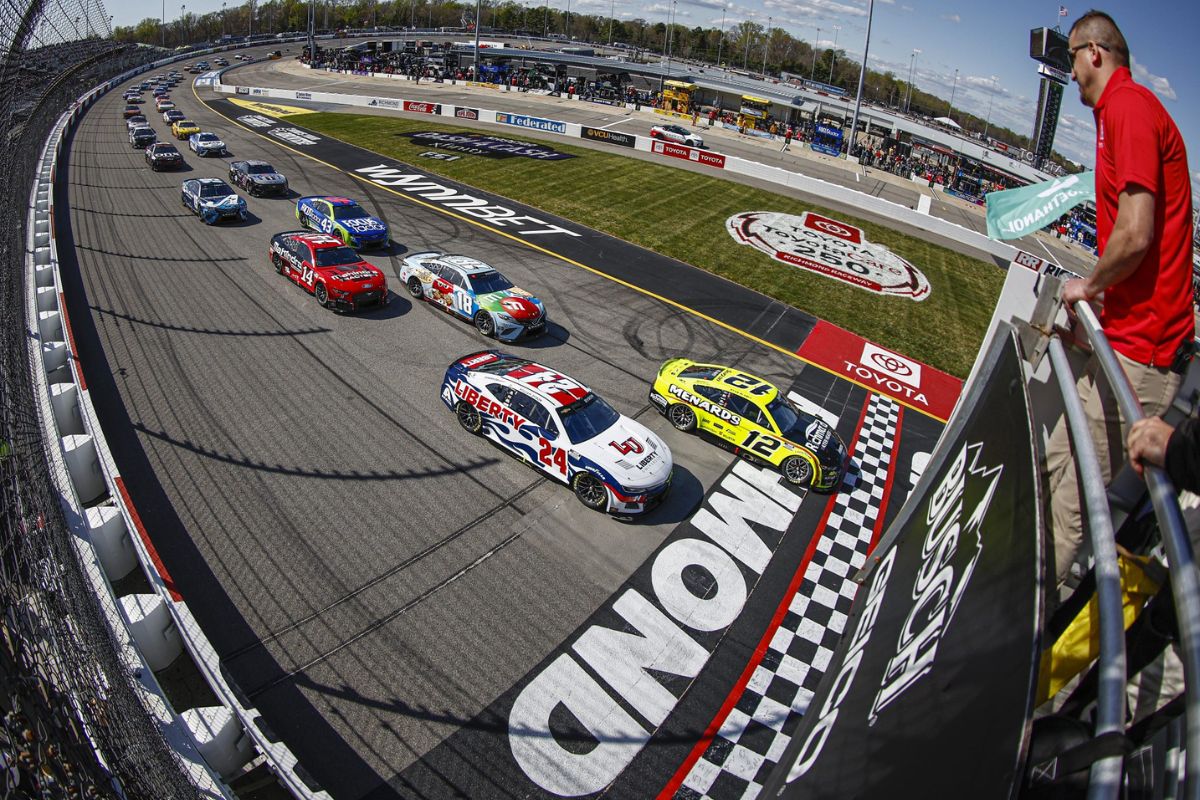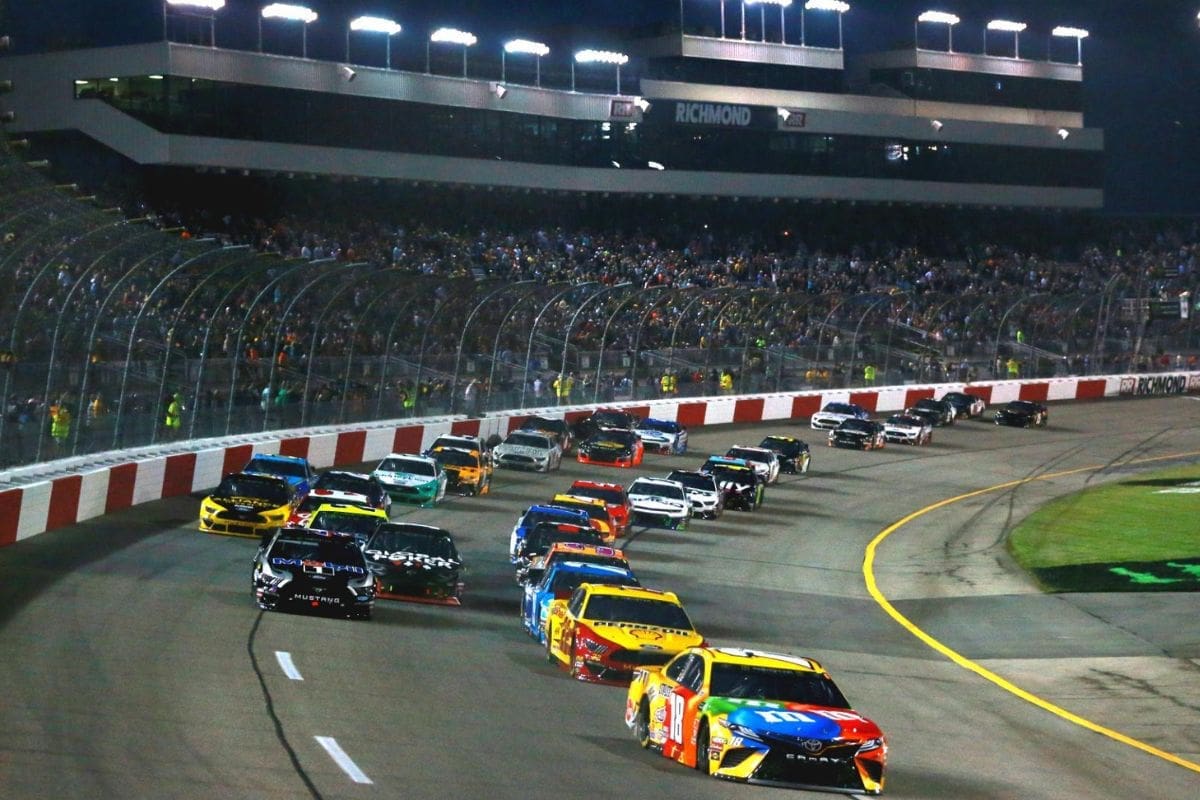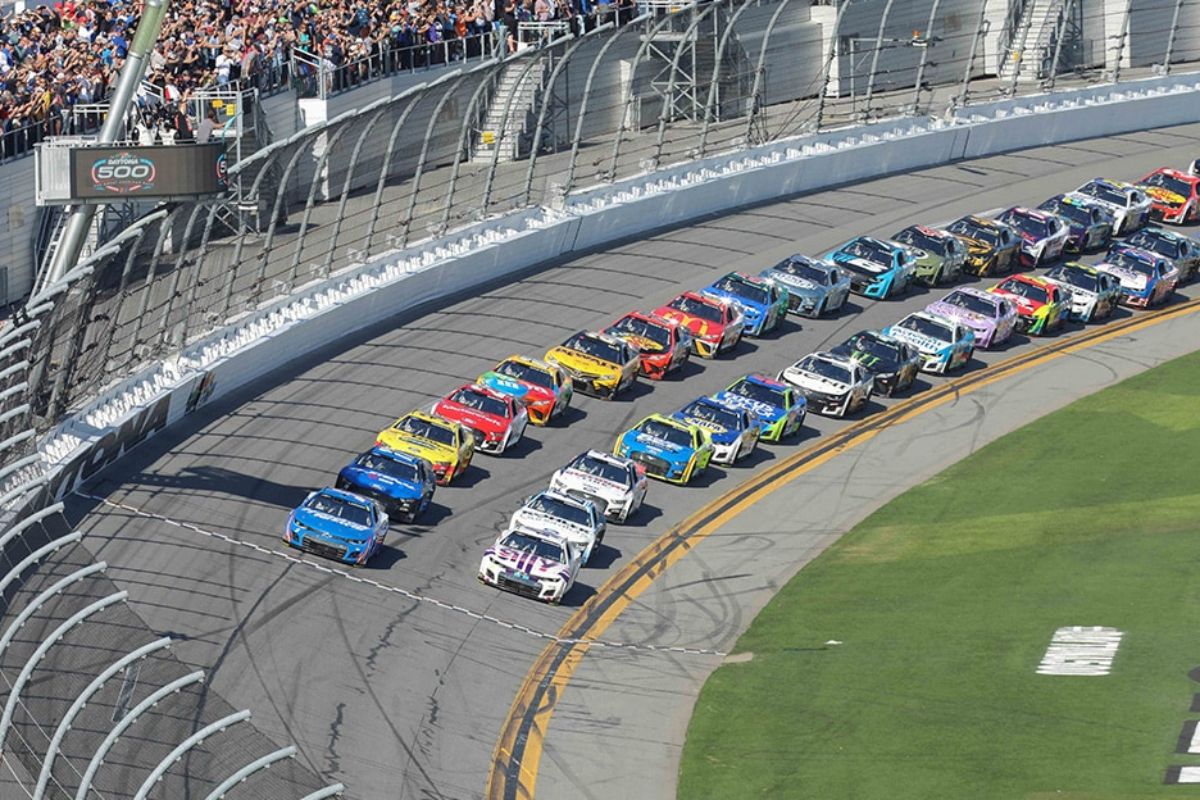NASCAR Ends Richmond’s 67-Year Run: NASCAR’s recent decision to discontinue events at Richmond Raceway, a venue steeped in 67 years of racing history, has ignited a complex emotional response among fans, marked by both anger and resignation. As attendees reflect on the cherished moments that defined their experiences, the impending loss raises questions about the sport’s future direction and its commitment to tradition amidst evolving business challenges. This contrast of nostalgia and tactical recalibration invites deeper examination into how NASCAR plans to navigate the delicate balance between maintaining its heritage and adapting to contemporary demands. What might this mean for the sport’s identity moving forward?
Key Highlights
- Fans express nostalgia and a sense of loss over Richmond’s closure, reflecting on its 67 years as a staple in stock car racing.
- Mixed feelings of anger and resignation are prevalent among attendees, with many disappointed by the decision to end Richmond’s spring race.
- Social media reactions reveal strong emotional responses, with calls for NASCAR to reconsider the closure from dedicated fan groups.
- Declining attendance and inconsistent race quality contributed to the decision, as Richmond’s sellout races became increasingly rare over the years.
- The economic impact of the closure raises concerns for local businesses and tourism, highlighting Richmond’s significance in NASCAR’s heritage.
NASCAR Fans’ Reaction to Richmond Raceway’s Farewell
NASCAR fans’ sentiments surrounding Richmond Raceway’s farewell reflect a complex mix of nostalgia and relief, marking the end of an era with a shared understanding of the track’s declining appeal. For 67 years, Richmond served as a cornerstone of stock car racing, representing a time when the sport thrived on short tracks that fostered close competition and intense rivalries.
However, the recent disillusionment with the racing product and dwindling audience turnout has led to a palpable sense of acceptance among fans as they confront the realities of change. The chaotic nature of the recent Austin Dillon’s race exemplified the frustrations associated with Richmond’s current offerings. Fans have voiced their disappointment regarding the lackluster excitement that once defined the venue.
Instead of mourning the loss, many have welcomed the opportunity for NASCAR to rejuvenate its schedule, with the potential for new venues and fresh experiences. The decision to part ways with Richmond appears to signal a forward-thinking approach, prioritizing the sport’s evolution over nostalgia.
Interestingly, the reception from drivers mirrors that of the fans, as both groups acknowledge the necessity of this change. The potential entry into Mexico represents a bold step toward expanding the sport’s reach, suggesting that NASCAR is keenly aware of the need for innovation.
NASCAR Lets Go of One Richmond Event
The decision to bid farewell to Richmond Raceway‘s spring race highlights a significant shift in NASCAR‘s tactical direction. For 67 years, Richmond has held a cherished position on the Cup Series schedule, with its inaugural race won by Lee Petty in 1953. Historically, the venue has hosted two annual races, a pattern that remained intact until the COVID-19 pandemic disrupted the calendar in 2020.
With the recent announcement to eliminate the spring event while retaining the summer race, NASCAR is signaling a calculated pivot driven by business imperatives.
NASCAR’s decision stems from a need to optimize its schedule for maximum fan engagement and financial viability. The landscape of motorsport is evolving, and NASCAR is acutely aware of the necessity to adapt. Retaining the summer race may cater to a more engaged audience, potentially leading to increased attendance and revenue during that period.
By selectively focusing on events that yield the highest returns, NASCAR aims to reinforce its economic foundation in a competitive sporting environment.
This calculated move invites scrutiny regarding its long-term implications for the sport’s heritage and race fans. As the organization navigates this new chapter, it must balance the legacy of iconic tracks like Richmond with the pressing demands of contemporary motorsport economics.
Declining Attendance and Racing Quality at Richmond
Decades of tradition at Richmond Raceway have gradually diminished as attendance has plummeted and the quality of racing has waned. Once a premier destination for NASCAR fans, Richmond has struggled to maintain its historic sellout status, which exceeded 100,000 attendees two decades ago. The lack of competitive racing has led to discontent among fans, contributing to the track’s declining allure.
Several factors have contributed to this downturn:
- Inconsistent Race Quality: Recent events have failed to deliver the excitement and unpredictability that fans expect from NASCAR.
- Increased Competition: With the inclusion of new venues, such as the Mexico City race, Richmond faces stiffer competition for fans’ attention and loyalty.
- Changing Fan Demographics: The interests and preferences of the NASCAR audience have shifted, leading to a disconnect with the traditional Richmond experience.
- Local Support: As a Virginia native, Denny Hamlin highlighted the need for Richmond to adapt and learn from its current challenges, indicating that the local audience has made its feelings known.
“Sometimes it’s usually the cycles you have to go through. And so hopefully it’s a learning moment for the track and everyone involved. It certainly is a shame if it goes to one week (each year), but the audience here has made it warranted.” – Hamlin
As NASCAR prioritizes venues that can attract larger crowds and deliver thrilling racing, Richmond’s legacy has been put into question.
Fans’ Reactions and Richmond’s Challenges
Fans of Richmond Raceway are grappling with a sense of loss as the track’s storied history in NASCAR comes to an end. This emotional response, however, is tempered by a growing recognition that the decline of Richmond has been a long time coming.
Enthusiasts of the sport have observed a gradual deterioration in both attendance and the quality of racing over the past decade, leading many to foresee this unfortunate resolution.
The removal of the backstretch grandstands serves as a striking symbol of Richmond’s challenges, as it reflects not just dwindling crowds but also a broader disengagement from the events held at the track.
Fans have expressed disappointment over the erosion of the racing experience, with one noting that attendance at events had not reached sellout levels as far back as 2011. This sentiment emphasizes a palpable frustration regarding both the track’s management and NASCAR’s tactical decisions.
“Yeah this was a foregone conclusion. The racing has suffered greatly over the past 10 years or so, but even when I went to a Cup race in 2011 it wasn’t anywhere close to a sellout, though that was before they demolished the backstretch stands.” – fans’ reaction
While some fans have clung to the hope that the Richmond experience could be revitalized, the reality is that the motorsport community has been bracing for this announcement.
The discontent and resignation among fans highlight a vital crossroads in the sport, where the legacy of a once-thriving venue succumbs to the relentless demands of modern motorsports.
The implications of this decision will resonate throughout the fan base, signaling a need for reflection on the future of other longstanding venues.
Future Prospects and Fans’ Optimism
Many within the NASCAR community are turning their attention to the future, optimistic that this alteration opens new avenues for growth and innovation in the sport. The recent milestone at Phoenix Raceway, which experienced a substantial 19% increase in viewership, exemplifies the potential for NASCAR to rejuvenate its fan base and expand its reach.
“I live across the street, I’m sad but not surprised. Local advertising – they do a freaking abysmal job… for as much praise as Lori Waran seems to get.”
I would argue the fact that it managed to keep two dates for even this long is a testament to NASCAR’s respect for the track.”
“Richmond should make the most of this by pouring all their resources into their remaining race weekend. I think they can sell it out, and find other ways to make up for the lost revenue.” – fans reaction
This optimistic outlook is strengthened by the introduction of international events, such as the Mexico City race, generating excitement for new experiences and audiences.
- Increased Viewership: Phoenix Raceway’s record-breaking attendance signals a resurgence in fan interest.
- International Expansion: The Mexico City race marks a crucial step toward globalizing the NASCAR brand.
- Local Engagement: Richmond’s remaining race weekend presents an opportunity for local businesses to capitalize on increased tourism.
- Innovative Partnerships: Potential collaborations with local sponsors could revitalize marketing efforts and improve fan experiences.
“It’s a change that was needed, I don’t love the track they picked to switch to, I think there were other options but I am also willing to give the Mexico date a chance and see how it goes.” – fans’ reaction
As fans process the end of Richmond’s 67-year legacy, many acknowledge the necessity of transformation within the sport. The sentiment among several supporters reflects a readiness to accept change, with a focus on maximizing the remaining race weekend in Richmond.
This adaptability signifies a broader willingness within the NASCAR community to investigate uncharted territories, ultimately paving the way for a dynamic future. While the shift may be bittersweet, the commitment to innovation and engagement heralds a promising new chapter for NASCAR and its fans similarly.
News in Brief: NASCAR Ends Richmond’s 67-Year Run
The decision to end Richmond Raceway’s 67-year legacy reflects broader trends within NASCAR, balancing tradition with evolving business imperatives. While declining attendance and perceived racing quality contributed to this outcome, the emotional response from fans highlights the deep-rooted connection to the venue’s history. As the sport navigates its future, the challenge will lie in honoring its heritage while adapting to new realities, potentially reshaping fan engagement and the comprehensive NASCAR experience in the years to come.
ALSO READ: NASCAR Hosts 2025 Cup Race in Mexico City: Richmond Raceway Loses June Slot




